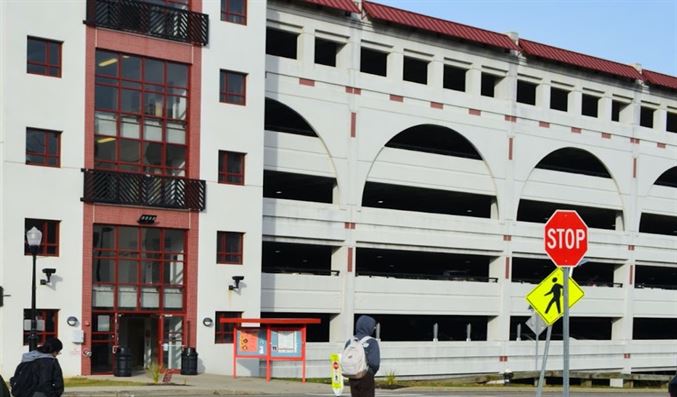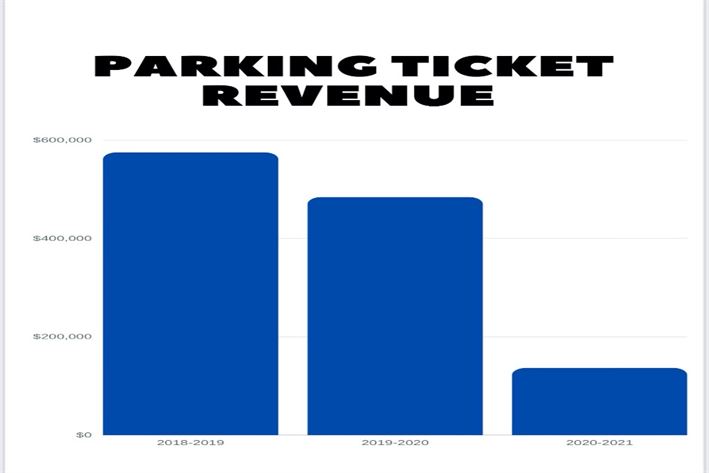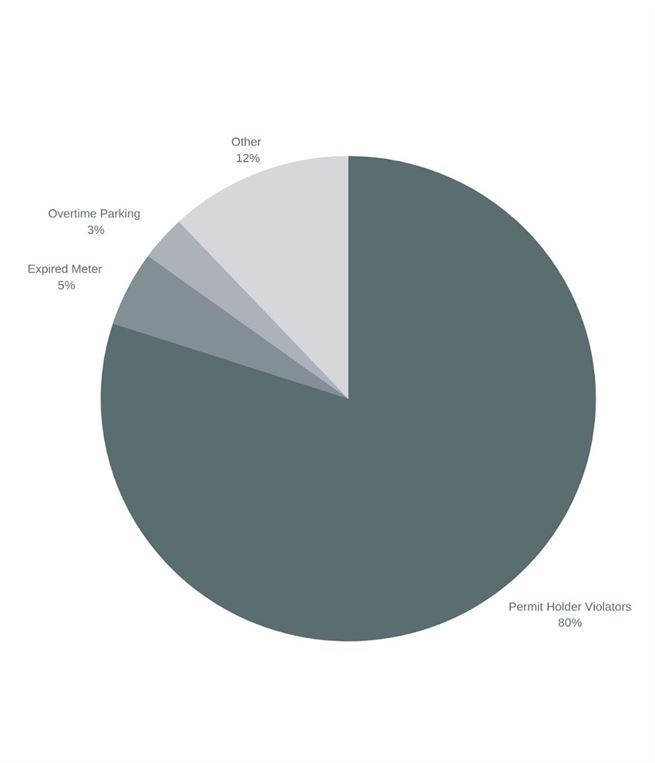Montclair State University raked in over $1 million in parking tickets within the last three years, according to statistics obtained by The Montclarion.
The university collected $574,608 in parking tickets in the fiscal year from 2018 to 2019.
Jalill Philemon, a senior theatre studies major, received approximately 30 parking citations in that year. As a freshman, Philemon did not have enough credits to park on campus and paid for daily parking in the NJ Transit parking deck. He said he was exhausted from work and wanted to avoid the long walk back to his dorm in the brutally cold weather, so he parked in Lot 19.
“I would get home during the time it was really cold, and I had to park my car in NJ Transit. I lived in Blanton [Hall],” Philemon said.
Philemon paid all of his tickets — each one $50 — except for two he successfully appealed. He couldn’t afford to pay all of them within the 21-day time limit, however, so he faced an extra $10 fine per ticket.
Since then, Philemon accumulated approximately 20 additional tickets, paying over $2,300 in fines.
“I tried to be cautious, but not everything works in [my] favor,” Philemon said.
Following the coronavirus (COVID-19) pandemic, the dollar amount of fines from students, staff and faculty decreased. This reduction was due to fewer students being on campus because of COVID-19. From 2019 to 2020, $483,603 was collected. From 2020 to 2021, $136,150 was collected.
All of the money raised by the university through parking tickets gets put back into the Parking Services budget, according to the university’s spokesperson, Andrew Mees.
Approximately 45% of the tickets issued in the last three fiscal years were distributed at the lots closest to the main campus. Parking violations at Car Parc Diem were responsible for 24% of tickets. Lot 19, right in front of the Recreation Center, was the location of 11% of tickets. Lot 17, behind the Student Center and next to Blanton Hall, accounted for 10%.
Roughly 80% of the fines were given out to people who paid for a permit but were not following the rules. The next most common types of parking penalties came down to expired meters at 5% and overtime parking at 3%, according to the university.
Blerina Pushkule, a senior public health major, is a commuter who said she has gotten approximately 25 tickets since her freshman year, most of them accumulating in Lot 19.
Pushkule explained why sometimes students have no choice but to park somewhere that may get them a ticket afterward.
“[It’s because of] the inconvenience of finding parking and [having to] settle for something so you won’t be late for class,” Pushkule said.
Pushkule says she often takes this risk and hopes parking services will bypass her vehicle.
“I’m just hoping I’ll make it out in time before someone drives by,” Pushkule said.
Ben Omuya, director of parking services, said there is a misconception that there are not enough parking spots on campus. In reality, drivers are trying to get close to campus and take the risk to park illegally, rather than parking legally in the empty spots at the further ends of campus that require a shuttle ride to class.
“I want to reiterate that we currently have enough spaces on campus to accommodate all permit holders and visitors,” Omuya said. “However, given the geography of the campus and the number of parkers we must accommodate, it is impossible to provide next-to-building parking for everyone.”

Ben Omuya is the director of parking services at Montclair State University.
Givonna Boggans | The Montclarion
Omuya said parking services issues warnings the first two weeks of each semester as students navigate their way on campus. After that grace period, citations are given out. Most individuals do not repeat the same mistakes after receiving their first ticket.
The director works with students but also reinforces the guidelines written in the parking policies when a person purchases a parking permit.
“Students agree to the terms when they purchase a parking permit, and [these terms] break down the rules, guidelines and consequences if permit holders violate the rules,” Omuya said.
William Fitzpatrick, assistant vice president of facilities logistics and support services, said this isn’t about collecting money on their end.
“It’s about educating to control the inventory of spaces we have,” Fitzpatrick said.
During November, students can donate canned goods to the Red Hawk Pantry instead of paying for one parking ticket. Each good is worth $10 toward the cost of the citation.
Parking Services continues to conduct studies to improve the fluency of parking, according to Omuya. One way is through technology.
The NextBus app shows shuttle arrival times at specific stops, the ParkingCloud Mobile app shows space availability and cameras have been added throughout campus to monitor spaces and shuttle stops to adjust to commuter needs on campus.







